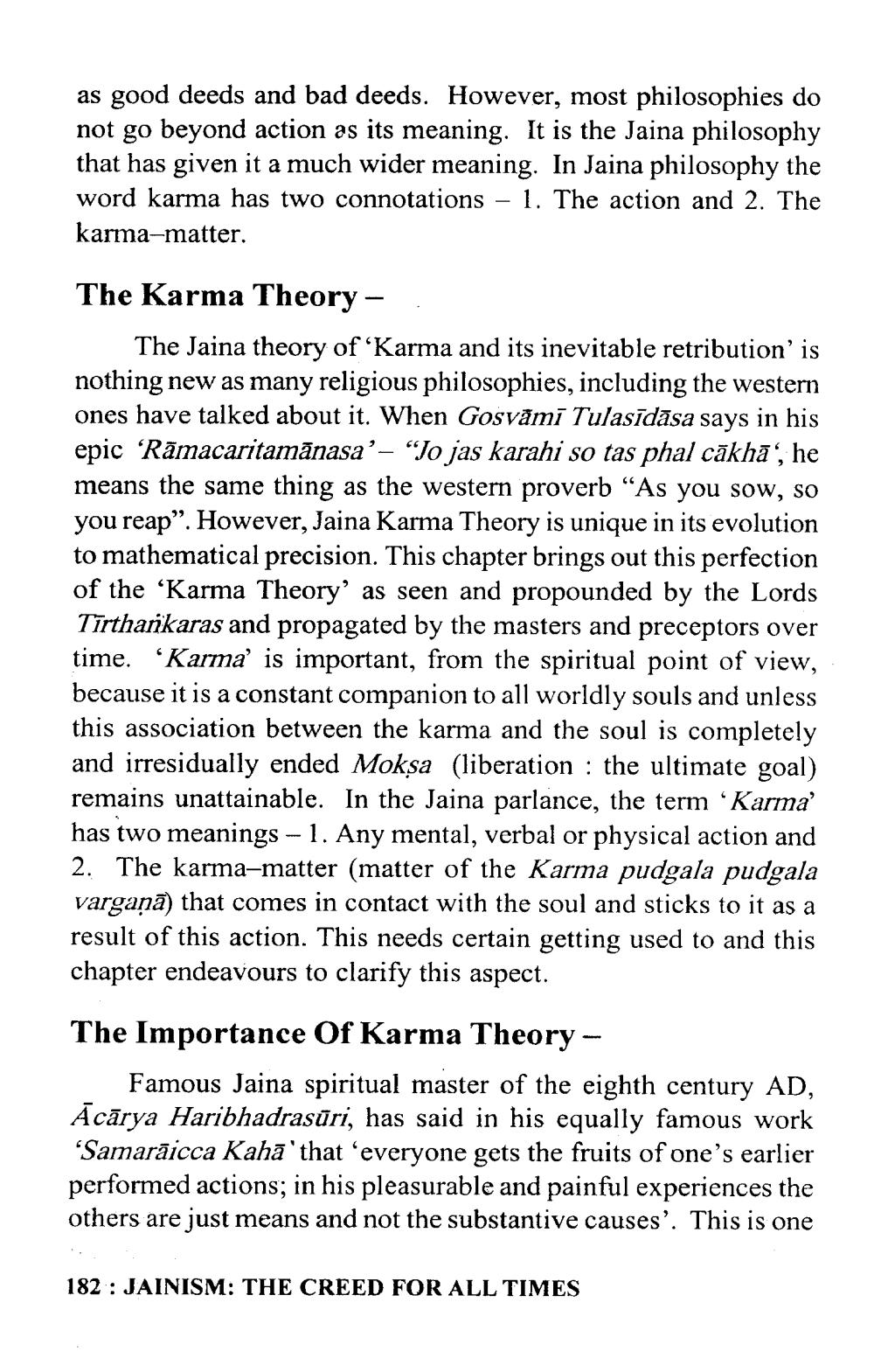________________
as good deeds and bad deeds. However, most philosophies do not go beyond action as its meaning. It is the Jaina philosophy that has given it a much wider meaning. In Jaina philosophy the word karma has two connotations – 1. The action and 2. The karma-matter.
The Karma Theory -
The Jaina theory of 'Karma and its inevitable retribution' is nothing new as many religious philosophies, including the western ones have talked about it. When Gosvāmi Tulasīdāsa says in his epic 'Rāmacaritamānasa'- "Jo jas karahi so tas phal cākhā', he means the same thing as the western proverb “As you sow, so you reap”. However, Jaina Karma Theory is unique in its evolution to mathematical precision. This chapter brings out this perfection of the ‘Karma Theory' as seen and propounded by the Lords Tīrtharikaras and propagated by the masters and preceptors over time. “Karma' is important, from the spiritual point of view, because it is a constant companion to all worldly souls and unless this association between the karma and the soul is completely and irresidually ended Moksa (liberation : the ultimate goal) remains unattainable. In the Jaina parlance, the term “Karma' has two meanings - 1. Any mental, verbal or physical action and 2. The karma-matter (matter of the Karma pudgala pudgala varganā) that comes in contact with the soul and sticks to it as a result of this action. This needs certain getting used to and this chapter endeavours to clarify this aspect.
The Importance Of Karma Theory -
Famous Jaina spiritual master of the eighth century AD, Ācārya Haribhadrasūri, has said in his equally famous work ‘Samarāicca Kahā'that 'everyone gets the fruits of one's earlier performed actions; in his pleasurable and painful experiences the others are just means and not the substantive causes'. This is one
182 : JAINISM: THE CREED FOR ALL TIMES




